- AED
- AFN
- ALL
- AMD
- ANG
- AUD
- AWG
- AZN
- BAM
- BBD
- BDT
- BGN
- BIF
- BND
- BOB
- BSD
- BWP
- BZD
- CAD
- CDF
- CHF
- CNY
- CRC
- CVE
- CZK
- DJF
- DKK
- DOP
- DZD
- EGP
- ETB
- EUR
- FJD
- FKP
- GBP
- GMD
- GNF
- GTQ
- GYD
- HKD
- HNL
- HUF
- IDR
- ILS
- INR
- ISK
- JMD
- JPY
- KES
- KGS
- KHR
- KMF
- KRW
- KYD
- KZT
- LAK
- LBP
- LKR
- MAD
- MDL
- MKD
- MMK
- MNT
- MOP
- MUR
- MVR
- MWK
- MYR
- NGN
- NIO
- NPR
- NZD
- PEN
- PGK
- PHP
- PKR
- PLN
- PYG
- QAR
- RON
- RSD
- RWF
- SAR
- SBD
- SEK
- SGD
- SHP
- SLL
- STD
- THB
- TJS
- TOP
- TTD
- TWD
- TZS
- UAH
- UGX
- USD
- UYU
- UZS
- VND
- VUV
- WST
- XAF
- XCD
- XOF
- XPF
- YER
Do Cats Have Good Eyesight? Understanding Cat Eyes
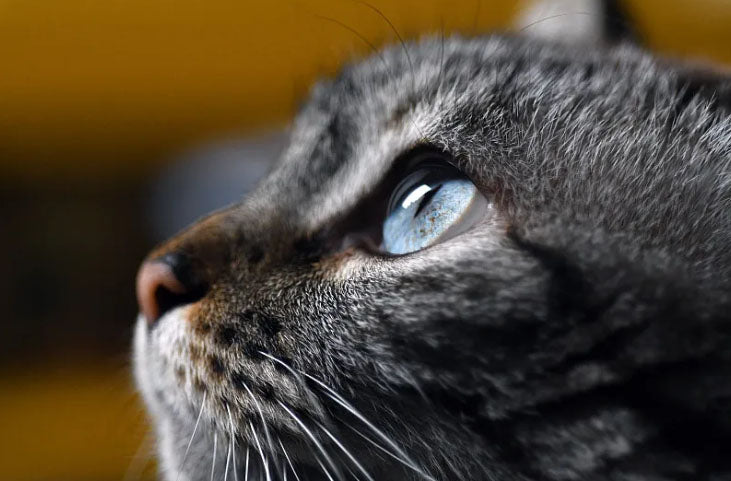
If you own a cat, you may have experienced waking up at midnight to find your kitty destroying some gadgets or staring at some mystical being outside the window. Don't blame your cats, they are not the troublemakers. Maybe there are some real troubles in your house——some tiny bugs. You may also find that they can always quickly capture the flight tracks of some flying insects with their visual field.
This is because the structure of the cat’s eyes is similar to that of humans, but their eyes are less able to pick up changes in light and are more talented in analyzing images than humans. That means cats have poor daytime vision but strong dynamic vision.
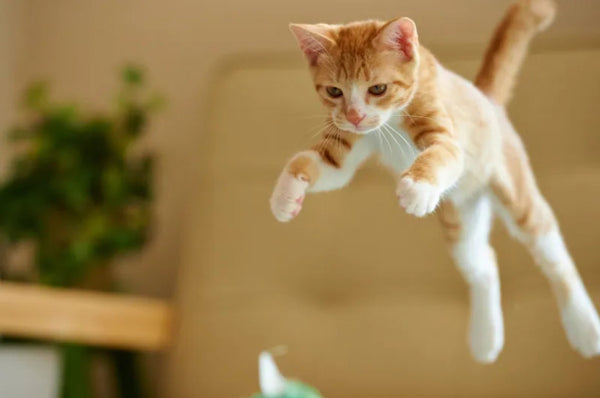
Do Cats Have Good Eyesight?
Have you noticed that your cat tends to engage in amusing behavior before bedtime or after the lights go out? This may lead you to believe that cats have exceptional eyesight and are nocturnal animals. Actually, these furry creatures are known as crepuscular animals. This means they are most active during the twilight, rather than during the daytime or midnight. Furthermore, they are nearsighted, which is an interesting fact to note about our feline friends.
Did you know that cats have a more advanced lens and cornea than humans? They have a reflective film in their eyeballs called Tapetum lucidum that helps them capture more light. However, due to the development of their lens, the diopter of their lens and cornea is higher, making them nearsighted.
In general, cats have limited vision and can only see objects within a range of 5-10 meters. Anything beyond that appears blurry to them. Despite being nearsighted, cats possess lots of rod cells in their retina that are highly sensitive to light. With its strong dynamic vision and broad range from 220 to 280 degrees, it allows them to gather more visual information.
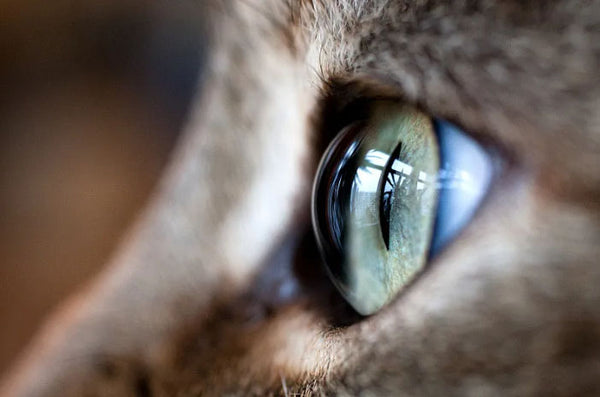
With dynamic vision and light perception, cats can effortlessly track and capture prey even at night. Their exceptional ability to see in the dark, coupled with their acute sense of smell and hearing, makes them well-equipped for post-bedtime adventures.
For cats, when an object is too close, it becomes difficult to see. This is a good reminder when playing with your cat using a pet stick - be sure to keep a safe distance and make some noise for added interest. Avoid sticking the pet stick too close to the cat's face.
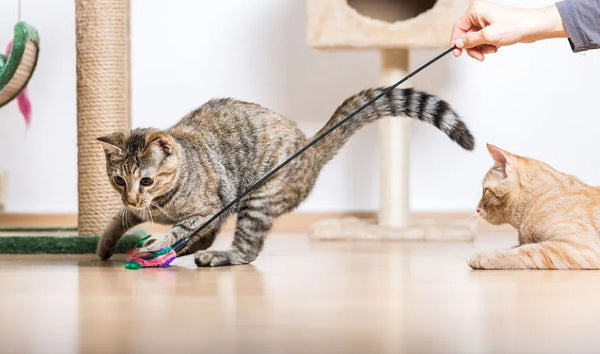
The Signs of Eyesight Diminution in Cats
If your cat often bumps his head against the wall while walking, be aware that he may also have vision diminution.
In general, a cat's vision diminution will occur in the following cases: the cat will become restless or very timid and sensitive. The distance between the cat and the owner is gradually getting closer. At the same time, they will also misjudge the distance and height between obstacles. If you find that your cat has these problems, you must pay more attention to it and consult the veterinarian in time for examination. If the eyesight is seriously declined, it will even cause blindness.
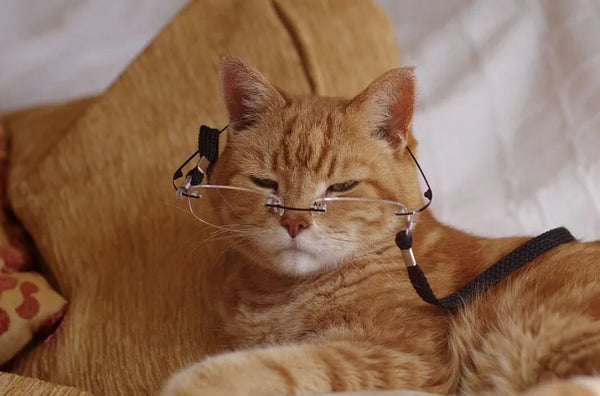
How to Prevent Vision Diminution in Cats
How to prevent vision diminution in cats? It starts with cats eating mice. Dr. Muller, a biology professor in Germany, found out the real reason why cats eat mice.
Cats have keen vision and an excellent ability to catch light, all of which rely on their retina. The mouse body has a substance called "taurine", which just helps maintain the function of the mammalian retina, and helps improve the night vision of mammals, is an essential amino acid in the cat body. However, cats can not synthesize taurine themselves, so to be able to see things at dusk, they need to supplement a lot of taurine. Without enough taurine, cats may experience retinal degeneration and even blindness. In addition to promoting good eyesight, taurine also has various health benefits for your cat's heart, brain, stomach, and immune system.
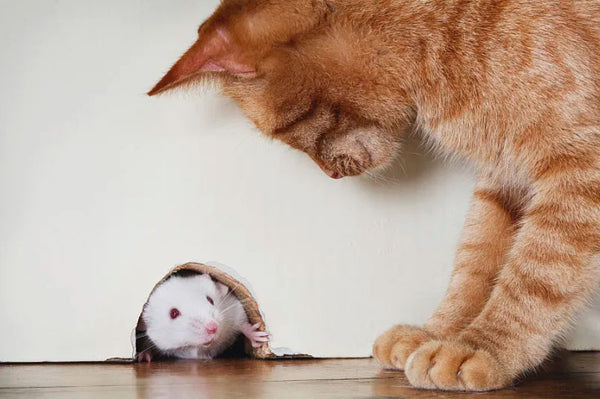
But for domestic cats, catching mice is no longer a simple task. So, what can be done to address this issue? In fact, taurine can be found not only in mice but also in other meats like chicken, beef, fish, and shellfish, and can be fed to cats in appropriate amounts. However, since cats have delicate stomachs, it is advisable to opt for cat food that contains natural taurine. Excessive consumption of artificial additives may bring a burden to the cat's digestive system.
No comments






0 comments